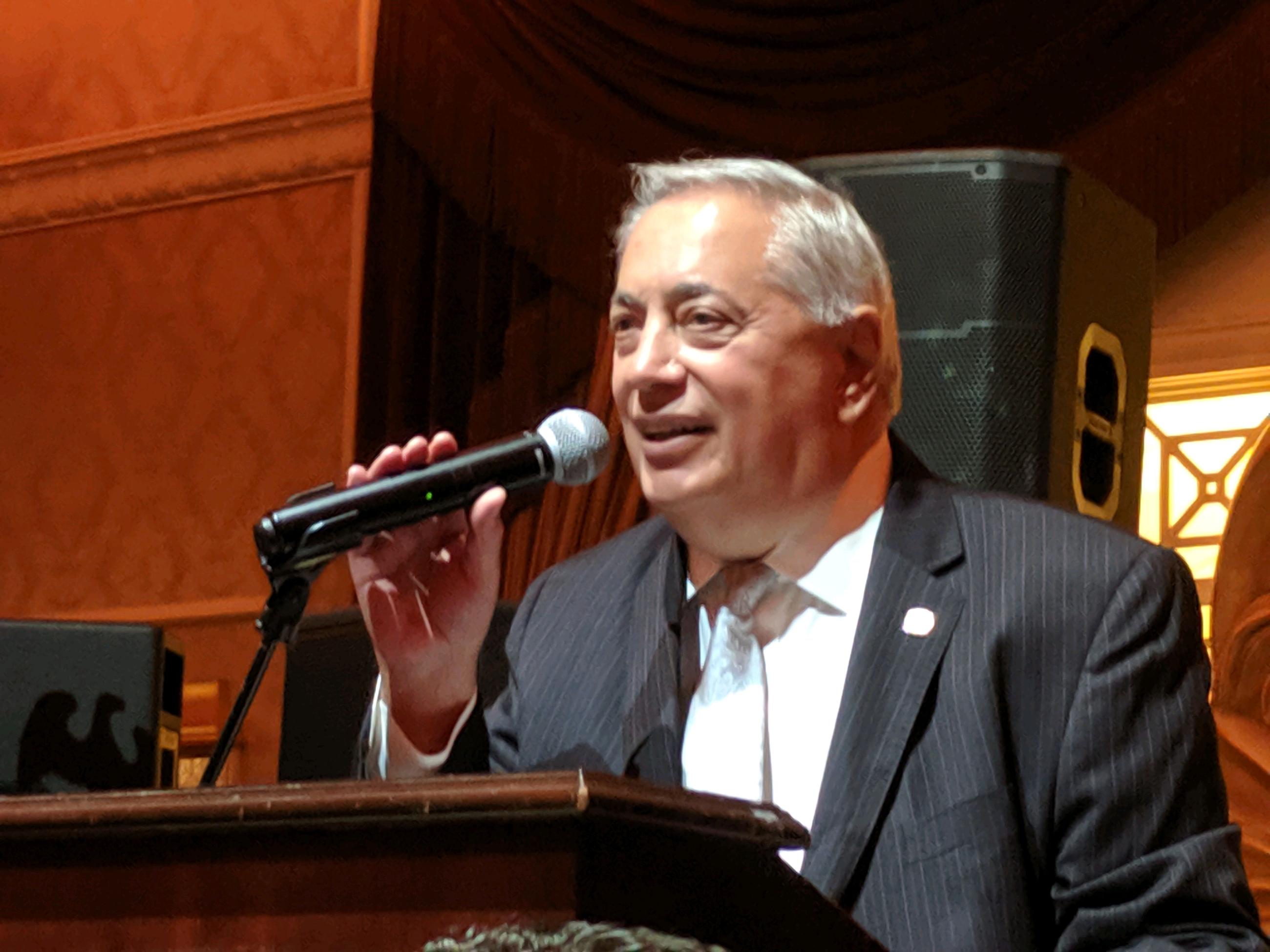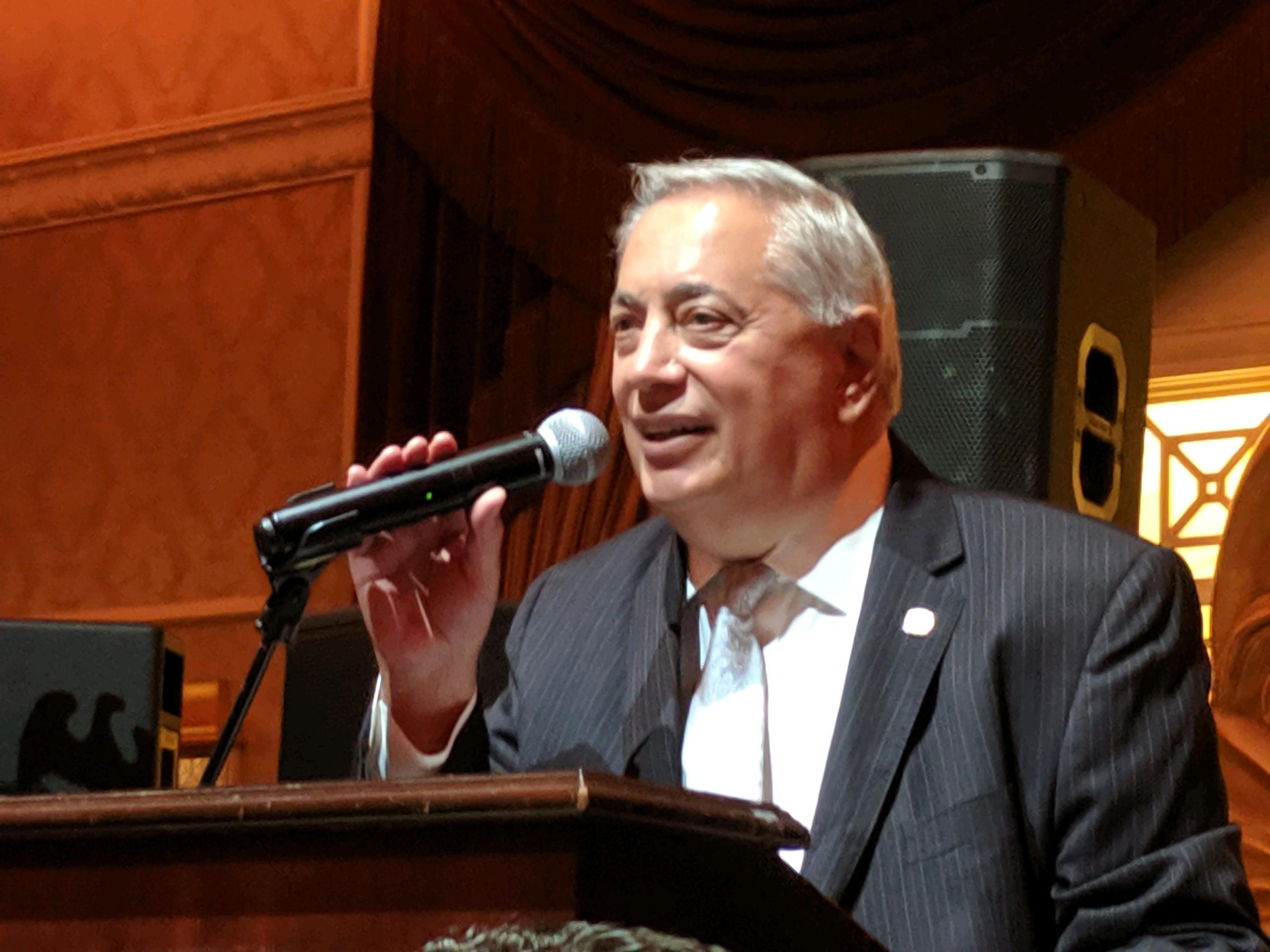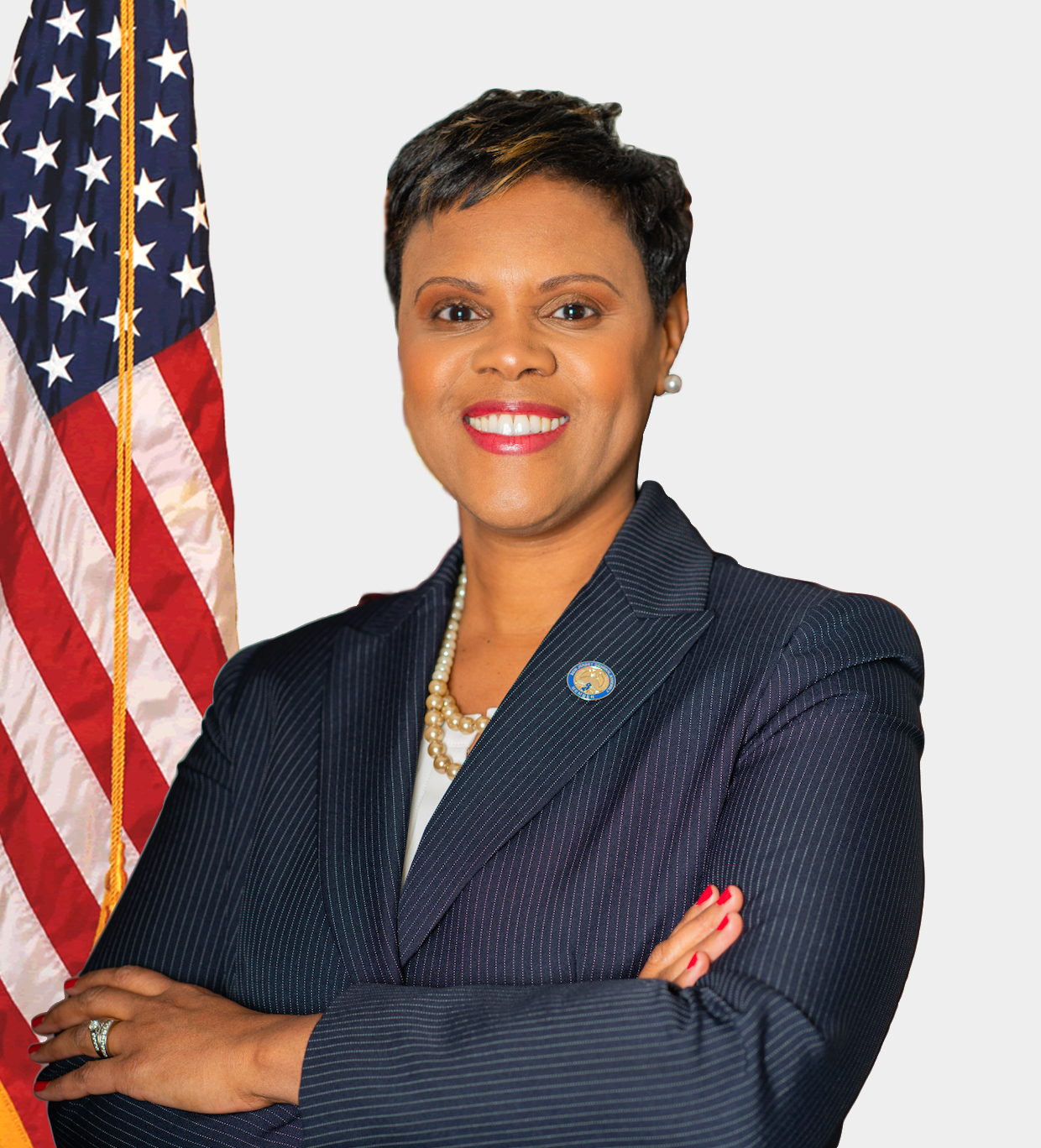Every college philosophy student inevitably encounters that showdown for the soul of the 19th Century between Hegel and Kierkegaard, although Hegel would argue there is no such thing as the soul, much less the soul of a century. When the materialism of the former would almost surely prevail, the student would find himself leaning again toward the Dane and some compelling reason to follow his Leap of Faith. So, it went: Hegel and Kierkegaard, Kierkegaard and Hegel, their rivalry of the mind persistent in the ongoing afterlife of ideas.
If such a place actually exists, it doesn’t reside in Hudson, decidedly the domain of Stack versus Sacco, Sacco versus Stack, their political rivalry less a material consequence of Hegel (and even less Kierkegaard) and probably more in line with the school of Thomas Hobbes, for “the state of society cannot be secure unless at the disposal of an absolute sovereign.” Sons of Hobbes, then, their mind games of two decades have kept them mostly intent on maintaining an edge in the political annals of North Hudson, the rough Hudson equivalent of Hegel and Kierkegaard.
Both state Senator/Mayor Brian P. Stack (D-33) of Union City and North Bergen Mayor Nick Sacco derived from a school whereby two seats were better than one, and like the titans before them, they occupied two at a time, namely mayor and state senator, embodying the late period of dual office holding, which enabled a local elected official to simultaneously serve as a lawmaker in Trenton, in the name of “best representing the people.” Widely publicly derided before dispensed with, dual office holding served as a supposed example of power overreach. But in the years since, as a few bosses who do not hold elected office became more powerful, wielded control from the shadows, and overlorded elected officials who lacked any particular amassed power, politics watchers make a case for the value of stacked (pun intended) offices to empower those who actually put their names before the people on a ballot.

Grandfathered in, Stack (pictured, top) and Sacco would labor together, side by side in mutual muscle-flexing North Hudson mode, until 2021 redistricting – arguably engineered by those sympathetic to Stack – retired Sacco as a Trenton presence with a map that broke up his legislative district, leaving him to consolidate his local empire only, while Stack carried on as Hudson’s last walking duopoly of the senator-mayor variety. Following ten years of cutthroat politics back and forth between North Bergen (Sacco) and Union City Stack), the years leading up to redistricting proved mostly amiable. Then Stack won and Sacco lost, and the rivalry resumed, Sacco leveraging with a vengeance solely from the local level. If the days of Frank Hague deciding national elections for Democrats died in the 1930s, only very marginal wins for Kamala Harris in North Bergen and Union City, with Latinos in Hudson going for Donald Trump, proved, perhaps, transcendent regional politics producing a national-level vacuum, or at least vacuity.
In such a time, with Democrats widely in despair and disarray, it looked like the perfect opportunity for Hudson to use the springboard of its own friction and make another play for statewide relevance. If the days of Augie Torres HCDO unity seemed but a memory, the two bosses appeared happy to play a Mad Max-like game of chicken over next year’s gubernatorial contest and Jersey City mayor’s race, with Sacco allies a little more collectively coy, delighting in early Stack moves that – at the very least – appear to have made matters more politically complex for Stack, and for the county.
Partly in anyone but Jersey City Mayor Steven Fulop mode, Stack indicated an early preference for U.S. Rep. Josh Gottheimer in the 2025 Democratic Primary, but few followed him with any particular committed zest. Sacco, of course, let that endorsement hang out there, as he did Stack’s backing of former Governor James McGreevey (ironically, another of the last dual office holding guys from Woodbridge, bucking for a comeback) for Jersey City Mayor. As McGreevey tried to gain traction, Sacco was even seen enjoying the cozying up of Hudson County Commissioner Bill O’Dea, McGreevey’s rival, and taking pleasure in publicly flirting over dinner.
Of course, Fulop running for governor threw a wrench, because he appeared to have the conviction of running against the establishment, while coming out of the most established political county, and that gave more license to Stack and Sacco to zigzag in the vicinity of others with a better shot at power. It’s pretty unresolved. In the words of one Hudson insider, “both sides are trying to put the toothpaste in the tube” at the moment regarding mayor and governor, seeking more time and – with apologies to Augie Torres – some semblance of political intelligence if not the unity of the millennium’s second decade.
“Nobody in Hudson wants a war,” the source added, acknowledging Hudson County Executive Craig Guy desperately playing footsy with all sides, even as U.S. Rep. Mikie Sherrill gained traction out of the gate of her gubernatorial announcement in other key counties, while Gottheimer allies considered what a path would look like if they too, like Fulop, and Newark Mayor Ras Baraka, could make a case (but for Bergen, where his own party chair backs him) for a boss conglomerate contributing little more than institutional corrosion. Then again, if Stack backed one ticket, Sacco – at least at this moment – appeared content to go in another direction. Old philosophers persistently at odds. By the end of it, without resolution, if the two remain intent on opposing sides, one of them could be he who makes the case against a supposedly worn-out establishment, personally representing that dwindled footprint of bossism, organizationally leading an insurrection – not with Fulop but with a Fulop-like message – against The Man.
(Visited 85 times, 93 visits today)
After a tumultuous few months for Hudson County, many are wondering if the county can restart their engine in time for the upcoming gubernatorial election after the recent debacle surrounding the county executive’s failed bid for the presidency.
Hudson County has long been a Democratic stronghold in New Jersey, with a large and diverse population that has historically played a key role in state politics. However, recent events have left many residents and political observers questioning the county’s ability to maintain its influence and power in the upcoming election.
The trouble began when Hudson County Executive Tom DeGise announced his intention to run for president in the 2024 election. Many saw this as a bold move for DeGise, who had previously been seen as a relatively low-key figure in state politics. However, his campaign quickly floundered, with poor fundraising numbers and lackluster support from key Democratic constituencies.
As DeGise’s presidential bid faltered, questions began to arise about his ability to effectively lead Hudson County. Some critics argued that his focus on the national stage had distracted him from his duties as county executive, leading to a lack of progress on key issues facing the county.
In the wake of DeGise’s failed presidential bid, many are now looking to the upcoming gubernatorial election as a key test for Hudson County’s political future. With the current governor facing a tough reelection battle, there is a sense of urgency among local Democrats to regroup and present a strong, united front in support of their party’s candidate.
However, there are also concerns about whether Hudson County can overcome the damage done by DeGise’s failed presidential bid. Some worry that the county’s reputation may have been tarnished by the debacle, making it harder to rally support for their candidate in the upcoming election.
Despite these challenges, there are signs that Hudson County may be able to restart their engine in time for the gubernatorial election. Local party leaders are already working to rebuild support and mend fences within the Democratic ranks, while also reaching out to key constituencies to shore up their base of support.
Ultimately, the success of Hudson County in the upcoming election will depend on their ability to learn from the mistakes of the past and present a united front in support of their candidate. If they can do so, there is still hope that Hudson County can maintain its influence and power in New Jersey politics for years to come.



